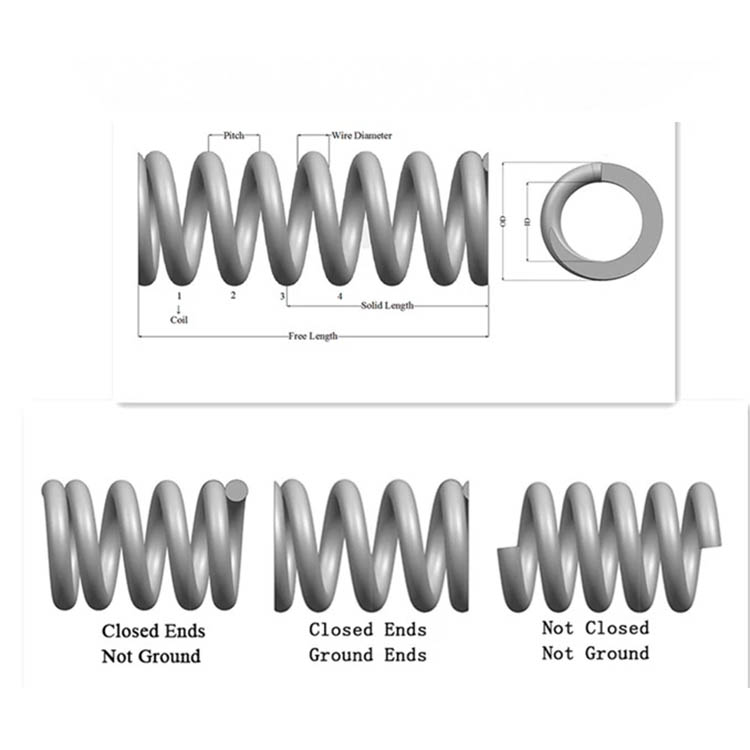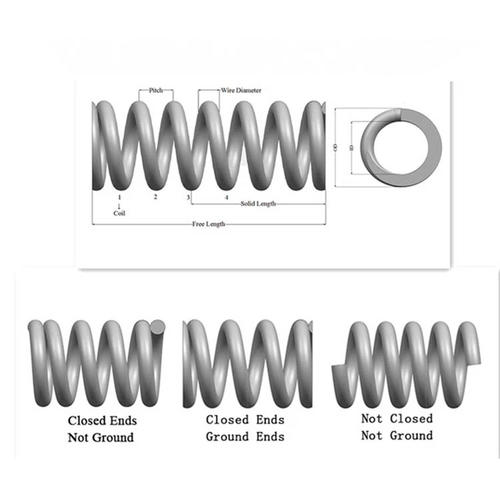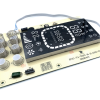
Comparative Analysis: Helical Coil Compression Springs vs. Other Spring Types
When it comes to selecting the right spring for your application, understanding the differences between spring types is crucial. Among the various options available, helical coil compression springs stand out due to their unique design and functionality. In this article, we'll conduct a comparative analysis of helical coil compression springs versus other common spring types, helping you make an informed decision for your custom spring solutions.
Understanding Helical Coil Compression Springs
Helical coil compression springs are characterized by their coiled design, which allows them to compress when a load is applied. This design enables them to store and release energy efficiently. Commonly made from high-quality materials such as stainless steel or carbon steel, these springs are known for their durability and reliability.
Key Features of Helical Coil Compression Springs
- Load Capacity: These springs are designed to handle significant loads while maintaining structural integrity.
- Versatility: Suitable for a wide range of applications, from automotive to aerospace and consumer goods.
- Customizability: Manufacturers can tailor specifications such as wire diameter, coil diameter, and overall length to meet specific requirements.
Comparison with Other Spring Types
1. Tension Springs
Tension springs, unlike helical coil compression springs, are designed to stretch and resist a pulling force. They typically have hooks or loops at either end to facilitate attachment.
Advantages:
- Effective in applications where pulling forces are prevalent.
- Simple design makes them easy to install.
- Not suitable for applications requiring compression.
- Limited load capacities compared to helical coil compression springs.
2. Torsion Springs
Torsion springs operate differently from both tension and helical coil compression springs. They store energy when twisted and are commonly used in devices like clothespins and garage doors.
Advantages:
- Excellent for applications requiring rotational motion.
- Can be designed to exert torque efficiently.
- More complex designs can increase manufacturing costs.
- Not suitable for linear compression applications.
3. Leaf Springs
Leaf springs consist of multiple layers of metal, which provide flexibility and support. They are often used in vehicle suspensions due to their ability to absorb shocks.
Advantages:
- Highly effective for load distribution.
- Robust design ideal for heavy-duty applications.
- Bulkier than helical coil compression springs.
- Less versatile in applications requiring compact designs.
Performance and Application Suitability
Load Handling
Helical coil compression springs excel in applications requiring significant load-handling capabilities. Their ability to compress and return to their original shape under load makes them ideal for:
- Automotive Suspensions: Supporting vehicle weight and providing a smooth ride.
- Industrial Machinery: Absorbing shocks and vibrations in heavy equipment.
In contrast, tension springs are best for applications involving pulling forces, while torsion springs are better suited for rotational tasks. Leaf springs, while effective for distributing weight, lack the compact nature of helical coil compression springs.
Space Considerations
When space is at a premium, helical coil compression springs shine. Their design allows for efficient energy storage without occupying excessive space. This makes them perfect for:
- Consumer Electronics: Small devices requiring reliable components.
- Medical Equipment: Applications where size and weight are critical.
In contrast, leaf springs are often too large for such applications, while tension and torsion springs may not provide the necessary energy storage capabilities.
Cost-Effectiveness
Cost is always a consideration when choosing spring types. Helical coil compression springs can be manufactured to various specifications, allowing for cost-effective solutions tailored to specific needs.
Manufacturing and Material Costs
- Helical Coil Compression Springs: While the initial cost can be higher due to custom specifications, their longevity and performance often justify the investment.
- Tension and Torsion Springs: Generally less expensive, but may require more frequent replacements in high-stress applications.
- Leaf Springs: While durable, the complexity of their design can lead to higher manufacturing costs.
Conclusion: Making the Right Choice
When selecting a spring type for your application, consider the specific requirements, including load capacity, space constraints, and cost. Helical coil compression springs are often the best choice for versatility, performance, and durability, particularly in applications where high load capacity and compact design are essential.
At Xinzhaolang, we specialize in manufacturing high-quality helical coil compression springs tailored to your specifications. Our expert team is ready to assist you in finding the perfect spring solution for your needs. Contact us today to learn more about our custom spring solutions and how we can help drive your project forward.







